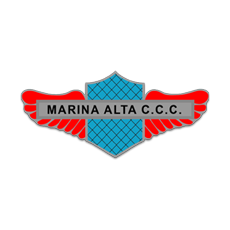

CMS is short for Content Management System – and it’s easy to understand why many novices find the term confusing. Broken down, it sounds like a specialized tool, something you might use to store and organize materials before putting them online or saving reference materials. In reality, though, CMS platforms are everywhere. WordPress is a CMS and so is Drupal, and there are dozens of others. Once you understand that every website is dependent on CMS infrastructure, the importance of such tools becomes clear.
With that in mind, then, how do you know if you have the right CMS platform? Consider these 4 factors as you navigate this complex marketplace. The right host is the one designed for your niche, so stay outcome-focused as you assess your options. It’s all about results, after all.
Think Support
For those who are relatively new to web design, the level of support available for a given CMS platform can be a big factor when selecting one for your own site. For example, WordPress is the most popular CMS because it’s used not only for business sites but also for many free, personal pages – it has over 24 million installations. Because so many people are using the platform, then, there are tons of support boards online, as well as a robust customer service team.
Compared to WordPress, a CMS like Drupal has only 1.3 million installs and Typo3 and Concrete5 follow Drupal at a distance with 500,000 and 140,000 installations, respectively. Though the users for these platforms are passionate about them, you’re far less likely to find beginner-friendly support for these systems.
Know Your Field
Just like WordPress is ideal for personal and small business websites, some other industries have niche CMS platforms. For example, in 2015, all Australian government departments were made to migrate online. In doing so, it became clear that most of the sites were very similar. In order to save money and reduce redundancies, local firm Bliss Media helped the government streamline the process by developing govCMS, a single CMS platform that could be adapted for any Australian government site with both PaaS and SaaS options.
Of course, many other governments could likely make use of govCMS, not just those in Australia, but this was decidedly a targeted solution. If you ask around within your industry, you’re likely to find similar solutions exist.
To Host Or Not To Host
Most CMS systems offer multiple hosting options, specifically designed so you can keep your system onsite and host it through your own servers, or you can just buy the software and run it remotely.
For most businesses, SaaS is a better option than on-site hosting because you aren’t responsible for server failures, the software is typically more flexible and always up to date, and the company takes care of the IT side of things. Even advanced web designers can benefit from SaaS – and these systems grow with your audience.
Study Security
Finally, security is a top concern for web users today, so if you’re using a platform without proper protections, you’ll see your user base decline. Some CMS systems support security plugins, while others allow you to restrict different users access settings. Make sure to ask plenty of questions about your security options before settling on a CMS so that you don’t wind up facing a user privacy scandal.
There’s no single CMS system that’s right for everyone. Instead, it’s important that you understand exactly what your end goal is and pursue it through your choice of platform. Take your time and don’t jump into a decision just because you want to get your site built. This decision will impact your site’s performance in the long term.
The post Are You Using The Right CMS Platform? appeared first on SpyreStudios.















